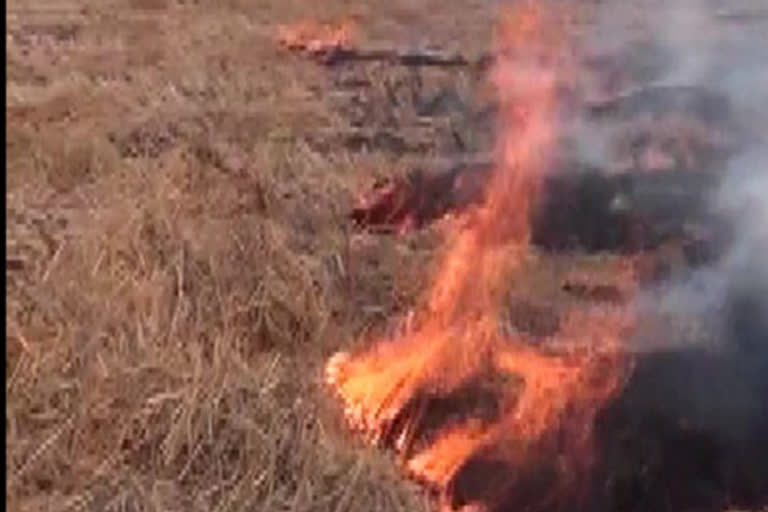New Delhi: With a prolonged spell of rains delaying paddy harvesting in some regions of Punjab, farmers are more likely to burn stubble to make up for the lost time and quickly prepare their fields for the next crop, experts say. Another weather system is predicted to bring rain in parts of north India between October 4 and October 8, which could further delay harvesting in some areas, forecasters said.
"The rains (last week) delayed paddy harvesting in several areas, especially in Amritsar and Tarn Taran region of Punjab, where farmers grow potato and peas before wheat. It is not an ideal situation," said Dr Mahesh Narang, the head of the farm engineering department at the Punjab Agricultural University. "The delay in paddy harvesting has further shortened the window to prepare fields for the next crop. So, there is a high probability these farmers may burn the paddy straw instead of managing it through machinery," he explained.
Stubble burning begins around September 20 but the number of fire events remains low till October 12-14. The rains last week suppressed farm fires in Punjab and Haryana and kept air pollution in check in Delhi-NCR, said Vinay Sehgal, principal scientist at the Indian Agricultural Research Institute. According to the data from the 'Consortium for Research on Agroecosystem Monitoring and Modelling from Space', not a single stubble burning incident has taken place in the last six days in Punjab.
Three residue burning events took place on September 23; 30 on September 22; 56 on September 21 and 10 on September 20. Mahesh Palawat, vice president (meteorology and climate change), Skymet Weather, said a cyclonic circulation over the west-central Bay of Bengal is likely to intensify into a low-pressure area and move in the northwest direction up to Madhya Pradesh. It could lead to rains in Delhi-NCR and some parts of Haryana and Punjab between October 4 and October 8.
If it rains next week, farm fires will shift towards mid-October, increasing their number in that period and compounding the impact, Sehgal said. Narang, however, hoped for better results this time. "Overall, we believe the number of farmers opting for in-situ management of stubble will increase this time unlike the last two years," he said.
Experts say farmers' protests in 2020 and the assembly elections last year were major reasons behind the spike in farm fires in the state. The Punjab government will distribute 56,000 additional machines at subsidised rates for in-situ management of stubble this season. A total of 90,422 machines have already been provided since 2018. The PAU professor said a repeat of the air quality crisis seen on Diwali and the subsequent days last year in Delhi-NCR is unlikely.
"Last year, three factors combined to hazardous air quality in Delhi-NCR -- farm fires, firecrackers and unfavourable meteorology. "Diwali is on October 24 this year and stubble burning peaks in November. This is a crucial factor. So, it may not lead to a severe situation on Diwali provided all other measures are followed strictly," he said.
Sunil Dahiya, an analyst at the Centre for Research on Energy and Clean Air said only sustained awareness campaigns and continuous engagement with all stakeholders will resolve the problems such as stubble burning. "Action just before the stubble burning period is unlikely to yield good results. Authorities need to educate and inform farmers about all kinds of options available to them, be it crop diversification, bio decompose, or in-situ management," he said.
Along with unfavourable meteorological conditions, paddy straw burning in Punjab and Haryana is a major reason behind the alarming spike in air pollution levels in the national capital in October and November. Farmers set their fields on fire to quickly clear off the crop residue before cultivating wheat and potato. According to the IARI, Punjab had reported 71,304 farm fires between September 15 and November 30 last year and 83,002 farm fires in the corresponding period in 2020. Last year, the share of farm fires in Delhi's PM 2.5 pollution had peaked to 48 per cent on November 7. (PTI)



